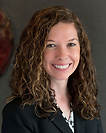Campaigning during COVID-19: Rules for Absentee Ballots
 This year, like every even year, Michigan voters will be asked to elect candidates for federal, state, and local offices. Up for grabs at the federal level are the Presidency, a U.S. Senate seat, and all 14 U.S. House seats. At the state and local levels, Michigan voters will be electing a new state Supreme Court justice, members of the state House and Senate, and local officials like county commissioners, mayors, supervisors, and the like. Unlike previous years, this election will happen during a global pandemic.
This year, like every even year, Michigan voters will be asked to elect candidates for federal, state, and local offices. Up for grabs at the federal level are the Presidency, a U.S. Senate seat, and all 14 U.S. House seats. At the state and local levels, Michigan voters will be electing a new state Supreme Court justice, members of the state House and Senate, and local officials like county commissioners, mayors, supervisors, and the like. Unlike previous years, this election will happen during a global pandemic.
COVID-19 has disrupted traditional campaigning and has forced retail politics to go digital. Door-to-door canvassing has been replaced by text messages and town halls have been moved from the local library to Zoom. But the most significant shift is the move from the ballot box to the mail box. This puts candidates' absentee ballot chase programs front and center.
Expanded Absentee Voting
There are two primary drivers to what is expected to be an increase in the number of voters voting by absentee ballot. The first was Michiganders approving a 2018 ballot proposal which allowed for no-reason absentee voting. Previously, voters needed a reason such as they are older than 60 or will be away from their hometown on Election Day to vote absentee. Now, any voter can request a ballot whether he or she has a reason or not.
Second, to reduce congregation at polling places and combat the spread of COVID-19, the Secretary of State mailed each registered voter an absentee ballot application. It is likely the ease of requesting a ballot coupled with the fear of COVID-19 will cause many voters who may have otherwise shown up at their polling place to instead cast an absentee ballot from home.
Election Laws Related to Absentee Voting
It is important for candidates to review the applicable laws and regulations that apply to absentee ballots before starting their chase programs. Candidates (and voters) should avoid:
- Voting or encouraging others to vote an absentee ballot at a meeting or gathering at which other voters are voting their absentee ballots.
- Attempt to influence any voter while they are filling out their absentee ballot.
- Ballot harvesting – which is offering, soliciting, or agreeing to collect an absentee ballot for delivery to the clerk.
While these rules seem relatively straight forward, it can be easy to run afoul of them. For instance, asking supporters on a Zoom call to pull out their ballots and vote along with the candidate is a clear violation of these rules. It is also not unusual for people to contact the campaign for help returning the ballot. Do not offer to have someone from the campaign pick up the ballot or even send them a stamp. Instead, tell the voter they can mail the ballot, deliver it in-person to the clerk, or give it to a family member to mail or deliver in-person on their behalf.
Be mindful about electioneering while a person is voting absentee and avoid breaking any campaign laws when the day of the election is in sight.
If you have any questions related to this communication or other election law issues, please contact your Foster Swift Attorney or a member of Foster Swift’s Election & Campaign Finance Law team:
- Anne M. Seurynck | 616.726.2240 | aseurynck@fosterswift.com
- Laura J. Genovich | 616.726.2238 | lgenovich@fosterswift.com
Categories: Campaign Finance (MCFA), Candidates and Committees

Laura's practice focuses on bankruptcy, municipal law, collections, and trial-level and appeals litigation. In the bankruptcy arena, she represents primarily Chapter 7 trustees. Laura has handled a wide range of trial and appellate matters for individual and business clients and has appeared before the U.S. Sixth Circuit Court of Appeals, the Michigan Court of Appeals, and the United States Bankruptcy Court for the Western District of Michigan, as well as Michigan circuit and district courts across the state.
View All Posts by Author ›
Anne has extensive experience in drafting and reviewing ordinances and policies, serving as general counsel, counseling clients on Freedom of Information Act (FOIA) and Open Meetings Act issues, and working with communities on millage and Michigan Campaign Finance Issues. Anne also has an expertise in library law.
View All Posts by Author ›


 Share
Share